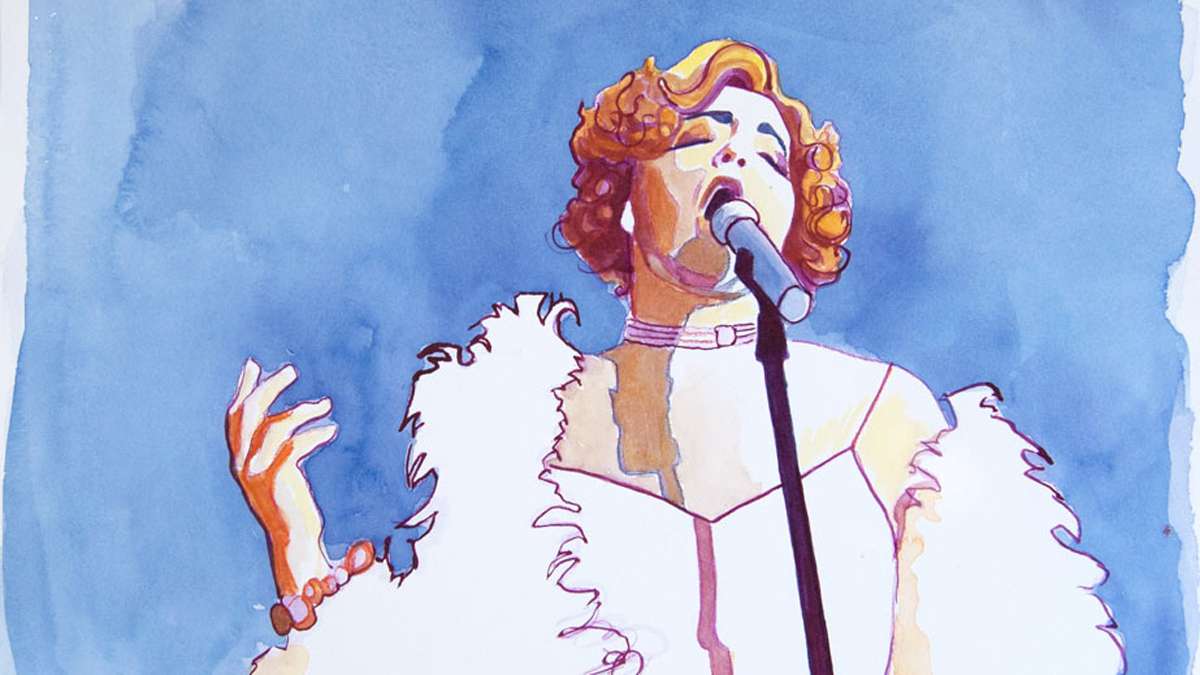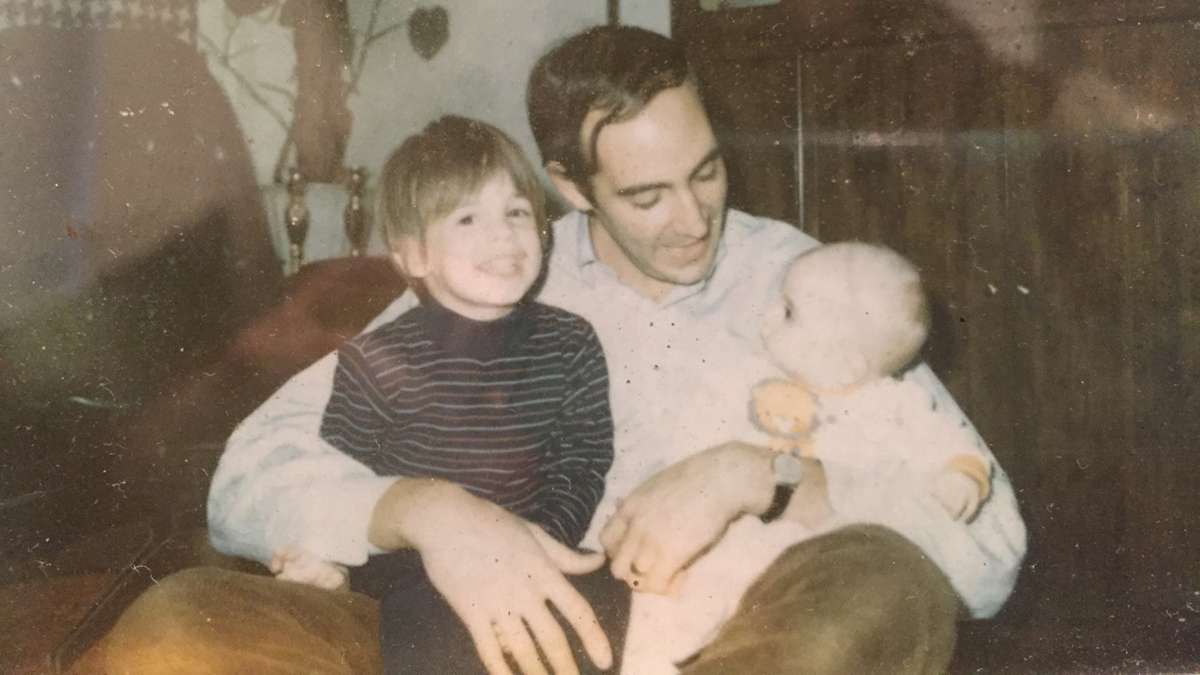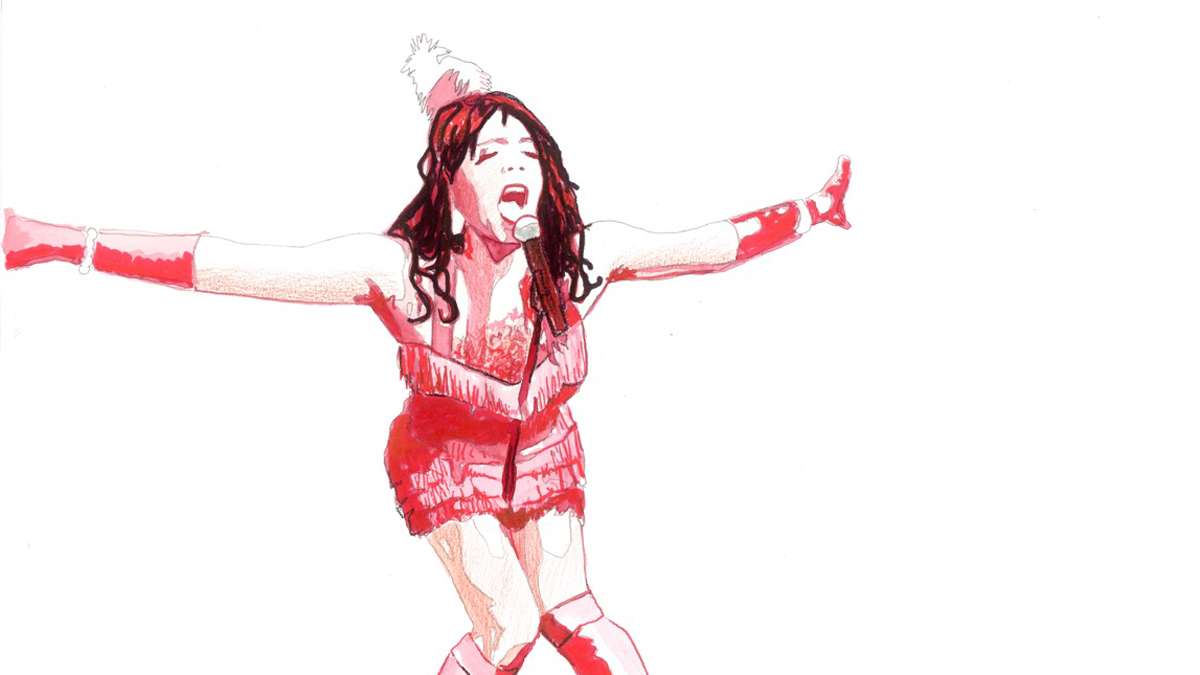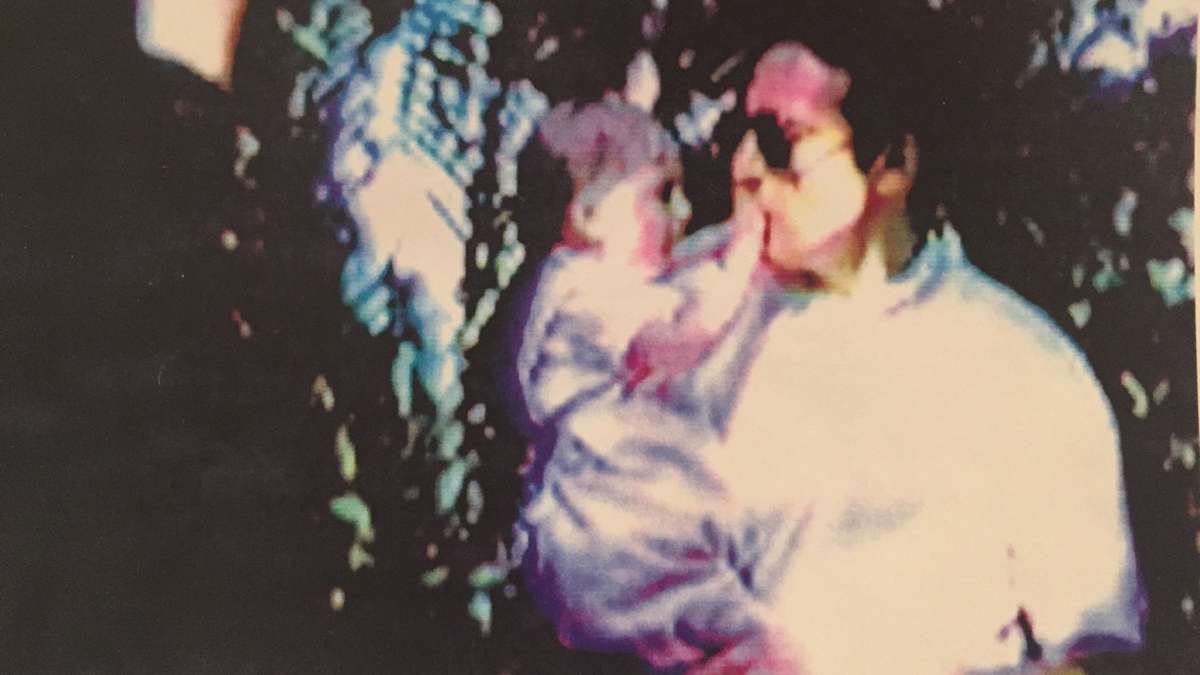Philadelphia artist remembers her father, one of the city’s early AIDS victims
ListenIn the early days of the AIDS epidemic, the gay community was hit hard. But contrary to public perception, not all those who were infected were single men. Many had families.
The children of those first victims have now formed a group called the Recollectors to begin telling their stories and reclaim the history of AIDS. One contributor is Jenny Laden, a Philadelphia-based artist and development director for the Pig Iron Theatre Company.
Stepping out of the closet
Two months after her parents divorced, 13-year-old Jenny Laden and her older brother, Tony, learned their father was gay.
“He said we shouldn’t worry because he wasn’t going to go running down Spruce Street wearing a red taffeta dress,” recalls Laden, chuckling at the image.
It was 1983, just a few years after the first AIDS cases appeared in the United States. The causative virus, HIV, had just been isolated, although it would be three more years before scientists would agree on its name. Already it was clear that the disease was far more common among gay men.
For Laden, the announcement was far less distressing than the reality of the divorce.
“It wasn’t upsetting that he was gay, it was more upsetting that he didn’t live in the same house as me,” she says.
Now she saw her father twice a week. They’d eat dinner together on Wednesdays and watch movies on Sundays. He shared his love of opera and Stephen Sondheim.
Aware of her father’s sexual orientation, Laden took an interest in gay culture and became sensitive to homophobia. She followed the developments with HIV and AIDS, choosing to do a term paper on the disease in high school and an art installation on its history her freshman year of college.
A terrifying revelation
Her sophomore year at Barnard College, Laden’s father asked to meet for coffee, and revealed that he had been HIV-positive for two years.
“It was terrifying,” she says. “I knew enough about the disease to worry that he was going to die really soon.”
At first, Richard remained healthy. He survived a bout of pneumonia, an infection that was almost always fatal in the early years of the epidemic. But little by little, he began to deteriorate.
“He had neuropathy in his feet,” recalls Laden. “Dementia was beginning to start. And he had lost a lot of weight, so wasting was happening as well.”
At the end of 1995, Richard was diagnosed with stomach cancer and doctors expected him to live just three months. He refused hospice care, wanting to spend his remaining time at home, and was told to leave the hospital that day. Jenny and some of his friends quickly arranged for a home health aide by evening. But after they left, Richard, a Harvard law graduate, told the aide to go home.
“My father was not somebody that was easy to argue with,” says Laden. “And she didn’t insist on staying.”
That night, during a trip to the bathroom, Richard fell down and broke his hip.
“It’s indicative of the shape that he was in, that usually an 80-year-old would break their hip,” says Laden. “He was 55.”
Richard re-entered the hospital, but this time instead of being assigned to an AIDS ward, he was placed on the orthopedic floor. The treatment was noticeably better.
“That was a disturbing and startling reality,” says Laden.
After about a week of attempted physical therapy, Laden’s father returned home. Less than two weeks later, he died, holding his daughter’s hand.
“When you watch someone die it’s very hard to accept because you don’t want them to,” says Laden. “On the other hand, you have to on some level—for their sake—be okay with it. He needed to know that I’d be okay.”
Recollecting memories
For the kids of parents diagnosed with AIDS at the peak of the epidemic in the 1980s and ’90s, it could be a lonely existence.
“I didn’t know anyone who had a father who was sick from HIV,” recalls Laden.
That has since changed, in part through connections made in support groups, and more recently, with Laden’s participation as a ‘Recollector.’ The Kickstarter-backed website is a space for family members to share the lesser known tales of loved ones lost to AIDS.
As an artist, Laden has developed her own ways of coping, too. Shortly after her father’s passing, she started graduate school at NYU to study art. Her thesis work drew on old Super 8 movies of her and her dad—an attempt, she says, to resurrect images of him as healthy and joyful.
WHYY is your source for fact-based, in-depth journalism and information. As a nonprofit organization, we rely on financial support from readers like you. Please give today.








